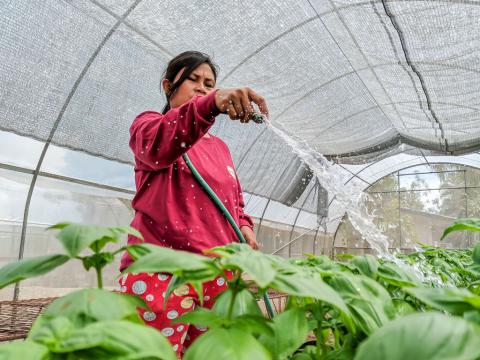ATI assists various farmers in different regions to adopt organic farming technologies through training and establishment of Learning Sites. (photo by Ashlee Canilang)
DILIMAN, Quezon City—Following the memorandum circular issued by the Department of Interior and Local Government (DILG), the practice of organic agriculture is expected to be further developed and widely promoted across different barangays in the country.
Through DILG’s “Gulayan sa Barangay” Program, all local government units (LGUs) including the Bangsamoro Autonomous Region in Muslim Mindanao, are directed to establish organic gardens in their areas. This is to ensure that the communities have enough supply of organic produce and, eventually, learn to practice a sustainable way of living.
DILG Secretary Eduardo Año ordered this undertaking through Memorandum Circular 2019-129 in support to the programs of the Department of Agriculture (DA) on organic farming. This is also in response to a resolution of the National Organic Agriculture Board (NOAB) recommending the DILG and LGUs to establish organic gardens based on the provisions of the Philippine National Standards for Organic Agriculture.
Likewise, this effort serves as a reiteration to the implementation of Republic Act 10068, also known as the Organic Agriculture Act of 2010. Under this law, the LGUs serve as frontliners in mobilizing communities, supported by institutionalized local organic agriculture programs.
The law also enables NOAB to coordinate with the Agricultural Training Institute (ATI) in conducting capability-building initiatives for farmers, producers, extension workers, consumers, and other stakeholders.
Aside from providing training programs towards National Certification II for Organic Agriculture Production, ATI assists farm owners in adopting organic farming practices through the establishment of Learning Sites.
Furthermore, ATI brings information on urban farming, with emphasis on organic-based practices, through its street caravan in different barangays in Metro Manila. To date, the “ATIng Gulayan ng DA Street Caravan” has visited barangays in Quezon City, Caloocan, Parañaque, Las Piñas, and Marikina.

